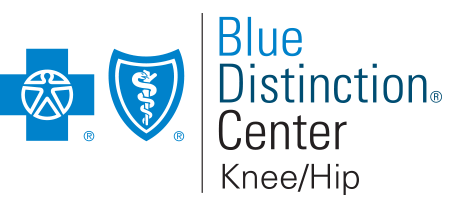Hip and Knee Replacement
Totally Different. Greatly Effective.
Patients who come to the Total Joint Replacement Center at GW Hospital are surrounded by an atmosphere of caring, comfort, and complete understanding. It's a very different atmosphere than other replacement centers, and we wouldn't have it any other way.
The Total Joint Replacement Center provides comprehensive preoperative and postoperative rehabilitation services for patients undergoing total hip replacement and total knee replacement. The center is staffed by a multidisciplinary team of rehabilitation specialists, including physicians, nurses, physical therapists, occupational therapists, case managers and orthopedic technicians. Working together, these skilled professionals provide a full complement of patient services:
- Preoperative education — View our Preparing for Orthopedic Surgery video series >
- Advance planning for post-hospital care & hospital stay
- Onsite rehabilitation
- Physical Therapy
- Occupational Therapy — Instruction on bathing, dressing, home safety, utilizing assistive devices, etc.
Total hip and knee replacement surgeries generally take from two to three hours and involve affixing an artificial joint made of metal and plastic to the bone. After surgery, patients stay on the Total Joint Replacement Center Unit, where recovery and rehabilitation begins.
Schedule an Appointment
To schedule an in-person or virtual appointment, please fill out our general appointment form or call our referral service at 888-4GW-DOCS.
 GW Hospital is a Blue Distinction® Center for Knee and Hip Replacement
GW Hospital is a Blue Distinction® Center for Knee and Hip Replacement
A Totally Different Approach
At the Total Joint Replacement Center, our goal is to get you back on your feet, both physically and psychologically. For that reason, our staff will not approach you as a "sick patient," but one who has elected surgery to help improve their quality of life. This means:
- Our staff will work to help you develop and maintain a positive outlook throughout the rehabilitation process.
- Your energies will be focused on maximizing functional mobility.
- You will always play a very active role in your healthcare. In fact, you may be allowed to administer your own pain medication, up to a maximum amount as determined by your doctor.
A Totally Different Beginning: Preoperative Education Services
The Total Joint Replacement Center's staff begins working with patients two weeks before their scheduled surgery. Physical therapists, occupational therapists, nurses and clinical coordinators offer a special preoperative class for patients, their coach and/or family. That way, everyone knows what to expect before, during and after the procedure. Classes are designed to address:
- Safety precautions
- Deep vein thrombosis (blood clots) prophylaxis
- Getting out of bed
- Transfer techniques (from toilet & tub)
- Weight-bearing status
- Gait training with use of assistive devices, such as canes, walkers, reachers, etc.
- Exercise
- Stair training
- Fall prevention
- Training in activities of daily living (bathing, dressing, etc.)
- Ensuring a safe home environment
- Potential postoperative complications
- Pain management
A Totally Different Recovery: Postoperative Rehabilitation
Provided onsite, the rehabilitation phase places a greater emphasis on functionality and post-hospital care. Rehabilitation includes:
Physical Therapy
Patients will receive morning and afternoon physical therapy daily. Sessions are normally conducted in a group setting where patients perform different exercises, practice correct transfer techniques and learn to walk and move about with assistive devices.
Surgeons recommend continuing physical therapy at home, or if necessary, as an inpatient on GW's Rehabilitation Unit for a short period of time. For those who require further assistance, arrangements can be made for home health care or transition to a skilled nursing facility.
Occupational Therapy
Here patients will receive morning and afternoon group occupational therapy daily. Sessions will address such matters as bathing, dressing and toileting while maintaining proper safety precautions and utilizing assistive devices. Other group sessions provide important instruction about safety in the kitchen and bathroom.
Our aggressive rehabilitation program helps patients become functional in a short period of time. Patients receive 24-hour nursing care. Plus, nurses and orthopedic technicians help reinforce exercises learned during physical therapy and occupational therapy groups.
Most patients are discharged three to four days following surgery. However, patients may stay longer if necessary.
A Totally Different Atmosphere: Comfortable and Convenient Facilities
The Total Joint Replacement Center is designed to make the patient's surgical and therapy experience as easy, pleasant, and productive as possible. The facilities are laid out in such a way that patients must walk short distances several times a day, which promotes activity and reduces the amount of time they spend in bed.
Patient rooms are housed within the orthopedic unit and an activity area is used for fitness and exercise training. Patients eat meals in a spacious activity room, which is also used for entertaining visitors and various patient activities. A furnished kitchenette is located on the nearby rehabilitation unit.
Total Involvement for Family and Coaches
At the Total Joint Replacement Center, we realize that family members and coaches play a crucial role in the recovery process. Family members and coaches are encouraged to participate in our preoperative education class as well as various group therapy sessions. These provide important instruction on how to care for patients recovering from total hip and total knee replacement surgery.
